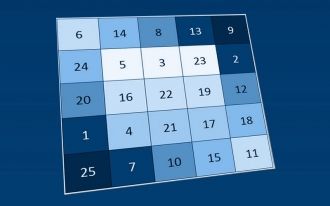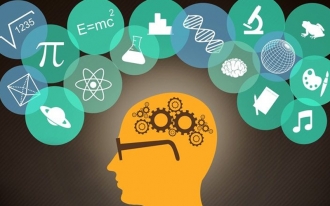- BRAINTRAIN |
- Blog |
- Brain Development |
- Why We Take Erudition Tests

Bogdan Moroz 18.02.2021 11631 Comments
Back in the mid-90s, the importance of erudition was emphasized everywhere, and the most popular TV shows were quizzes and competitions showcasing smart and educated individuals. In the education system and mass media, the image of a person possessing a vast amount of knowledge and “interesting facts” across various fields was celebrated.
Has anything changed today, and what do we mean by an erudite person?
The Cambridge Dictionary defines erudition as “the state of having or accumulating a large volume of knowledge known to a small group of people.” This definition clearly indicates that it’s not about specialized skills or deep expertise in a particular craft but rather fragments of superficial knowledge from various scientific fields, documented and stored in reference materials, which anyone can access if needed.
An erudite person is akin to a “walking encyclopedia,” able to quickly provide specific information about an object or phenomenon without extensive research. Where does this desire to attain such a state come from?
Knowledge for Knowledge’s Sake
The knowledge pursued by erudites is not driven by necessity or importance but rather by its rarity, intrigue, and the fact that it is studied by few. This type of information attracts those seeking vast amounts of knowledge. The volume of information they absorb depends solely on their physiological capacity, following the principle: “the more, the better.”
Does Erudition Broaden Horizons?
The idea that erudition significantly impacts a person’s worldview and accelerates their development was cultivated in all educational institutions, from kindergarten to old age. But is this truly the case?
Knowing a lot is not bad, but the source of that knowledge is far more important. A vast array of knowledge from unclear sources can distort one’s perception of the world, and skillfully imposed “facts” can manipulate opinions. It’s far more valuable to learn how to critically analyze information and evaluate its sources. Unfortunately, this is rarely taught in schools or even in most higher education institutions, especially as information sources constantly evolve, and verifying their authenticity becomes increasingly challenging with the widespread use of the internet.
Erudition as a Romantic Hobby
Perhaps this is the most accurate way to view erudition. With technological advancements, the practical value of “walking encyclopedias” is fading, but this doesn’t discourage enthusiasts—it adds a sense of exclusivity and romanticism to collecting knowledge. This pursuit should primarily be seen as an enjoyable pastime, with practical benefits considered secondary.
The Decline of the Erudition Era
By the “decline of erudition,” we mean its rapidly decreasing popularity among the general population. This trend is not limited to one country or ethnic group but can be observed globally to varying degrees.
Erudition or Google?
The turning point in the devaluation of possessing reference knowledge was likely the development of search engines and their accessibility on mobile devices. The younger generation rarely hears the phrase “it’s shameful not to know” because anything can be found in seconds using a gadget. In today’s world, the ability to quickly access and search for information is paramount. What’s considered “shameful” now is not knowing how to find the right information, formulate a concise search query, or filter out advertised “noise” to select reliable sources.
Practical Value of Broad Knowledge
In professional settings, the value of erudites has long been lost. Employers don’t need workers who simply know a lot; they value ambition, dedication, and the ability to learn quickly. As for knowledge, so much has accumulated over the years that it’s hard to determine what’s truly important.
However, in social settings, erudition still holds value. It allows a person to demonstrate engagement and competence not only in their own field but also in entirely different areas. In other words, it’s pleasant for a conversational partner when you know something about their work, making the discussion livelier and more engaging. For this reason, it’s worth training your erudition. This is where the brain training platform Mozgotren.com comes in.
What’s the Benefit of Erudition Tests?
Many view erudites as highly intellectual individuals with well-developed logic and memory, and they pursue broad knowledge to acquire these qualities.
Is There a Link to Intelligence?
Unlike erudition, intelligence is not about knowledge but about understanding, reasoning, and analyzing situations or abstract concepts. This ability is rooted in personal experience, not reference information. If there’s any connection between erudition and intelligence, it’s minimal. An intellectual may find it easier to become an erudite, but possessing a vast knowledge base doesn’t provide an advantage in solving unconventional problems.
Memory and Logic in Erudition Tests
Erudition and its training are closely linked to memory and logic, as they complement each other. Knowledge relies on long-term and visual memory, while a large accumulation of knowledge provides excellent material for logical analysis. By analyzing their knowledge, erudites can identify trends and concepts, enabling them to infer the essence of unfamiliar processes or objects.
The conclusion is clear: all logic trainers, memory, and erudition are interconnected and contribute to the development of each of these skills to varying degrees.
Self-Discipline and Mental Health
An equally important, if not decisive, factor in favor of online brain training is effective self-discipline and a consistent learning habit, which undoubtedly plays a critical role in maintaining mental health. Canadian researchers have long studied the impact of continuous education on pathological processes in the brains of elderly individuals. They all agree that acquiring new knowledge and skills significantly reduces the risk of degenerative brain processes.




